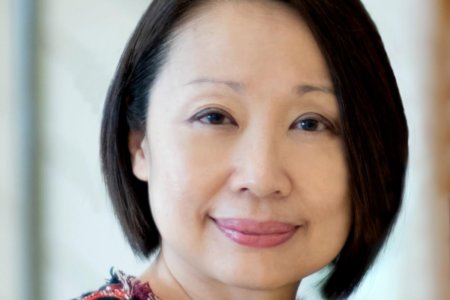
When Chevening scholar Naimatullah Zafary flew to the UK’s University of Sussex this year, he was on no ordinary flight. It was one of the last few available from Kabul International Airport. Days later, it would turn into hangars of chaos, filled with Kalashnikov-carrying Taliban fighters who would beat non-foreigners back.
Zafary almost did not get on the flight. After Afghanistan fell to the Taliban, the Foreign Office had initially decided to defer Chevening scholarships for a year. Dismayed, Zafary refused to accept this.
The 2021-22 cohort met UK embassy staff in Kabul many times over, pled to foreign media, and pulled strings in his network. His efforts paid off. British prime minister Borish Johnson later stepped in to ensure Chevening scholars will get the visas they need to get to the UK.

After all the years of hard work to become a Chevening scholar, Zafary was not ready to give up just yet, Taliban takeover or not. Source: Naimatullah Zafary
Today, Zafary is ready to focus on the future. Below we speak to this Afghan Chevening scholar about his experience so far at the University of Sussex and what he plans to do with his master’s degree.
Walk us through your Chevening scholarship application for the University of Sussex. What was the application process like?
The UK education system and standards. Top-notch global practitioners who graduated from unis in the UK and influencers in my country (who have great reputations) have encouraged me to apply for this scholarship since 2017.
I didn’t feel like I could make it but I kept motivating myself saying that next year would be my time.
What are you studying and what drove you to pursue this at uni?
I chose the MA in Governance, Development and Public Policy programme at the University of Sussex. This course selection was done because 75% of my country is living in poverty.
Unemployment, illiteracy and corruption are some of the biggest curses that citizens face. This could be addressed by the government in close collaborations with citizens. However, day by day, we Afghans start trusting our government less and less.
They did not provide the best services to their citizens so I chose this degree in order to bring up some positive changes in the areas of local governance. Also, I want to know how to make it a more citizen-centred mechanism rather than the other way around.
Our nation (children, women and the elderly) are on the streets and begging for food to get out of starvation. It’s the job of the government to facilitate them to have better lives. Seeing these people on the streets (where their numbers are increasing every day) is what motivated me to pursue this.
What are you liking most so far in the UK?
I like to walk with my family to parks and enjoy the beautiful surroundings and green areas. The walk on the streets in London gives me very positive energy — it’s very multicultural and diverse in the groups of people I see.
What were some of the challenges you’ve had to overcome to get to the UK?
During the difficult and unforgettable month of August this year, in the blink of an eye, we lost everything. The country’s system we worked so hard to bring positive changes to and the colours of the flag which has now lost their values.
We also lost the hope for getting the Chevening Scholarship but due to the various network of support we got from everyone including the UK government, crossing the chaotic border became a dream come true.

Zafary is pursuing an MA in Governance, Development and Public Policy. Source: Naimatullah Zafary
What plans do you have after you graduate from the University of Sussex?
After my degree at the University of Sussex, my intention is to do my master’s degree at the University of Oxford and it would be a dream to make it. I believe once I’m done with my studies (maybe with a PhD), then of course the working environment has to be tested.
It’s been a long time in the workforce and now that I’m back at uni, I’ll hopefully go on to do my PhD and working with more knowledge where I can pitch to the market and the people.
What about advice for international students who want to study in the UK? Do you have anything to tell them?
The UK is a great platform for your legitimate dreams and wishes to come true. The unis here do value those who seek to learn. I’ve seen it firsthand and I appreciate that our voices for education are heard.
It’s a combination of theoretical and practical knowledge that you’ll be getting in such great institutions and a great system.
What are your favourite things about Sussex and are there memorable experiences thus far you can share with us?
The University of Sussex’s global ranking in development studies, its lecturers and the beautiful campus it has. Except for the weather, one moment it’s sunny and then suddenly it starts raining. Although I love rain, it’s more than what I’m used to in my country — a lovely shower.
What about local food compared to home? Do you have any favourites?
I’ve not yet experienced local food so far but I do miss “qabuli pulao” (steamed rice with raisins, carrots, beef or lamb) from back home.










